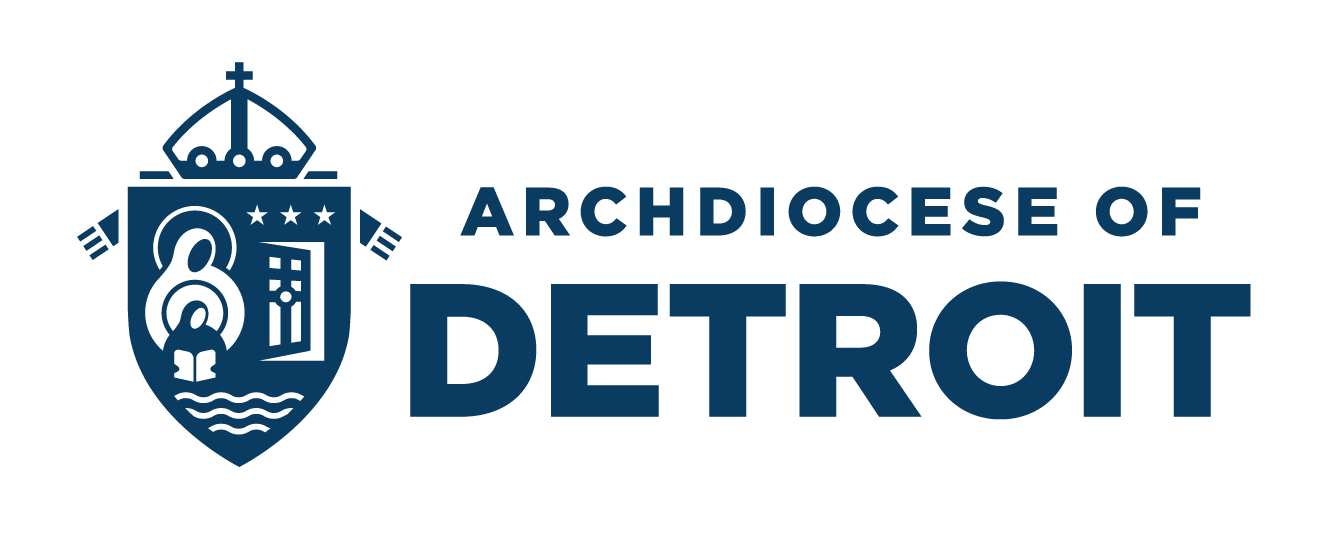Gods Mercy on the Road to Holiness
The following is a message given by Archbishop Allen Vigneron. It was printed in The Michigan Catholic newspaper on May 16, 2014.
n/aThe theme of God’s boundless mercy has been very much on my mind over these last weeks. By means of this posting I would like to offer my witness to the truth of Divine mercy, so that you will join me in praising and thanking our heavenly Father for his merciful love, and you will be confirmed in your resolve to receive his mercy and to reciprocate it with your own unconditional love.
Most recently I had the blessing of being on pilgrimage to Lourdes in the first days of May, spending about five days of prayer and reflection with the sick in the Sanctuary which surrounds the grotto where Our Lady appeared to St. Bernadette. My lasting impression of Lourdes – both the history of apparitions and the many graces that have followed, even until today – is that here the Blessed Mother has been a powerful evangelist of the mercy offered by her Son, Jesus, to our fallen and afflicted race. From her God the Son took on our weak, frail flesh in order to share his divine strength and life with us. At Lourdes she reminds us that God has come to be with us in all our trials, and he will never go away. He is always ready, eager, longing to be part of our lives; and she invites us to fly to him by prayer and repentance, and so to be washed in his merciful love.
And earlier, in April, the mystery of Divine mercy was squarely before the whole Christian people on the Second Sunday of Easter, Divine Mercy Sunday, with the canonization of two great pastors of our own era: St. John XXIII and St. John Paul II.
One way to better understand St. John XXIII and his decision to call the Second Vatican Ecumenical Council is to see that he wanted to renew the Church so that she could approach the world with new energy and new confidence in her mission of throwing open for the human family the riches of God’s saving mercy. Indeed, this would be that “New Pentecost” he so ardently and insistently asked us to join with him in praying for: a new announcing of God’s mercy to us sinners, that he has saved us through the death and rising of Jesus; a new call to turn away from sin to receive this mercy and to show our thanks by loving in return both him and our neighbors.
And it was more than “right and just” that Divine Mercy Sunday was the day on which the Church recognized another great pope, St. John Paul II. From the first hours of his service as the Bishop of Rome, St. John Paul II never tired of inviting all peoples, believers and unbelievers alike, to come to Christ, to accept his mercy; for his forgiveness and love are the only things that can really satisfy the deepest longings and highest aspirations of the human heart. No day of his papacy passed without St. John Paul II summoning us to meet our merciful Lord and to respond with our own “My Jesus, I trust in you.” And at the end, when he could no longer speak, he called out this message to us by his every gesture and action.
The proclamation of the gospel of God’s mercy is not finished, of course. The Holy Spirit has given us Pope Francis as a powerful preacher of God mercy to our age. In affirming that he is a loyal son of the Church, believing all that the Church teaches, Pope Francis underscores that the doctrine and way of life which Christ has entrusted to the Church are gifts of mercy, the truth that leads us safely home, the way that takes us to eternal happiness. Pope Francis has been blessed with a powerful gift of helping our age hear anew the good news that “God’s mercy endures forever.”
I invite you to join me in renewing our commitment to be heralds of the gospel of God’s merciful love. In this regard, I find particularly powerful one of the images Pope Francis has used: his comparison of the Church to a field hospital. In the Church the healing mercy that flows from the Heart of Jesus is available to all who call upon him. The Church’s clear teaching about sin and holiness is nothing other than a call to our age to recognize our need for mercy and an invitation to come to Christ in the Church to receive that healing love.
Through each of us doing our part as evangelists of God’s mercy, the Church in our age will be an ever clearer image of Mary, the Mother of Mercy: always ready to welcome sinners and always patient in accompanying us on the road of recovery toward holiness. Holy Mary, Mother of God, pray for us sinners now and at the hour of our death. Amen.


